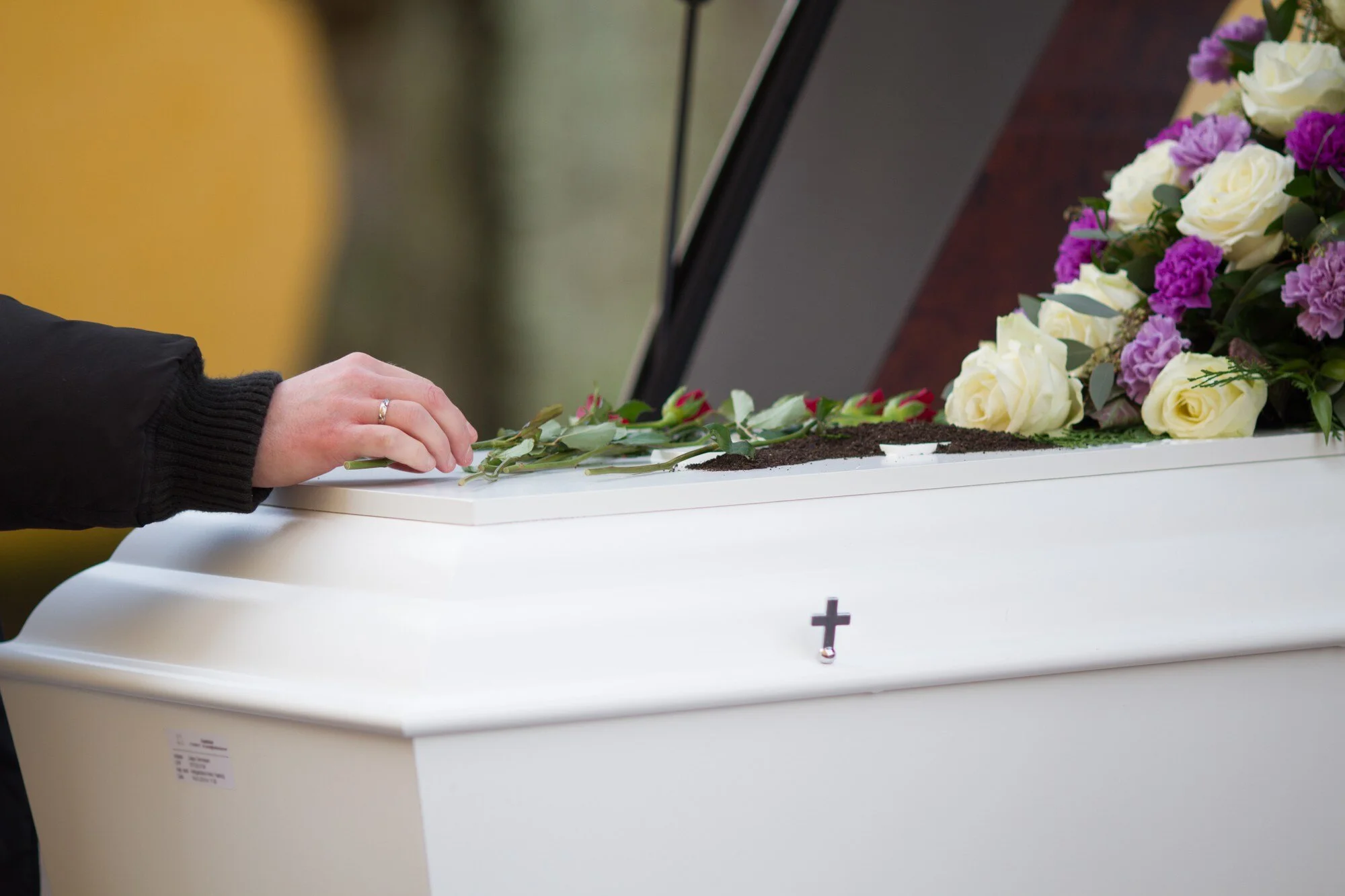Blog » Legal Requirements for Cremation: What to Expect

Cremation has become a preferred option for many when arranging end-of-life matters. Understanding the legal requirements is crucial for a smooth process. Navigating legal requirements for cremation: What to expect when following state and federal guidelines can be daunting. However, it ensures that all necessary steps are taken correctly. Whether planning for a loved one or yourself, knowing what is legally required helps avoid complications and brings peace of mind. By understanding these regulations, you can ensure the process honors your wishes and complies with all legal standards, making an already challenging situation easier to manage.
Cremation Legal Requirements: An Overview
Understanding the legal landscape of cremation is essential. While each state has unique rules, certain steps are consistently necessary across the country. First, proper authorization is required for cremation to take place. This usually involves written consent from the next of kin or an appointed representative. Without this consent, cremation cannot legally proceed.
Next, a death certificate must be filed with the appropriate governmental office. This document is crucial as it officially records the death and is a critical part of the legal process. Additionally, obtaining a cremation permit is usually mandatory. This permit is often issued by the local health department or the medical examiner’s office. The permit acts as an additional safeguard to ensure all legal protocols are followed.
These legal steps protect both the deceased and their loved ones, ensuring the process is carried out respectfully and lawfully. Although these requirements might seem overwhelming, they are designed to ensure everything is done correctly. It also ensures that the wishes of the deceased and their family are honored.
State-Specific Cremation Guidelines
Cremation laws differ significantly from state to state. It’s essential to understand the specific regulations in your area to avoid any delays or legal issues. Some states require a mandatory waiting period before cremation can take place. These waiting periods, which range from 24 to 72 hours, allow time to resolve any disputes or investigations. For example, Texas mandates a 48-hour waiting period, which can only be waived by a judge or medical examiner.
In addition to waiting periods, some states require a medical examiner or coroner's involvement before cremation. This ensures that the cause of death is accurately determined and that no suspicious circumstances need further investigation. In certain states, the cremation permit is directly tied to the death certificate. Both documents must be completed and filed correctly to proceed with the cremation.
Understanding these state-specific guidelines can prevent unnecessary delays and ensure the cremation process goes as smoothly as possible. Consulting with a knowledgeable funeral director or legal advisor can be beneficial when navigating these regulations.
The Role of Funeral Homes and Crematories
Funeral homes and crematories play a crucial role in ensuring all legal requirements are met during the cremation process. These professionals are well-versed in the necessary procedures and can guide families through each step. Their responsibilities include obtaining the required permits and ensuring all paperwork is completed correctly. Additionally, funeral homes and crematories follow strict protocols when handling and storing the body before cremation.
One of the first tasks of a funeral home or crematory is to file the death certificate with the state registrar. They also ensure that the next of kin provides written authorization for the cremation. Additionally, they observe any required waiting periods and obtain the necessary cremation permits.
These institutions follow strict protocols when handling and storing the body before cremation. This includes ensuring that the body is treated with dignity and that all legal requirements are met. By working closely with funeral homes and crematories, families can confidently navigate the legal landscape. They will know that their loved one’s final wishes are being honored.
Documentation and Authorizations Required
Navigating the legal requirements for cremation involves several critical documents and authorizations. The most important document is the death certificate, which must be filed with the local registrar before cremation. This certificate is usually completed by the attending physician or medical examiner. It includes the cause of death and other essential details.
The next key document is the cremation authorization form. This form must be signed by the next of kin or an authorized representative. It gives legal permission for the cremation to proceed. In some states, additional documentation may be required, such as a cremation permit or a medical examiner’s authorization. These documents ensure the cremation is carried out according to the law and the deceased’s wishes.
In cases where there is a dispute among family members about cremation, it’s essential to resolve these issues before filing any paperwork. Disputes can cause delays and add stress during an already difficult time. Legal counsel may be necessary to mediate and ensure all parties agree before moving forward.
Federal Regulations Impacting Cremation
While state laws primarily govern cremation, federal regulations also play a significant role. One of the most important federal laws impacting cremation is the Federal Trade Commission’s (FTC) Funeral Rule. This rule requires funeral homes to provide clear, itemized pricing for their services, including cremation. The transparency mandated by the Funeral Rule ensures families can make informed decisions about their loved one’s final arrangements.
Another federal consideration is the transportation of cremated remains, especially when crossing state lines or international borders. The Transportation Security Administration (TSA) has strict guidelines for transporting cremated remains by air. These include requirements that the urn or container be X-ray scannable. Additionally, if the cremated remains are to be shipped internationally, they must comply with the receiving country’s import regulations.
These federal regulations protect consumers and ensure the cremation process is handled with care and respect. Being aware of these laws can help families avoid potential legal complications. This way, their loved one’s remains will be treated with the dignity they deserve.
Cremation and Religious Considerations
Religious beliefs often play a significant role in the decision to cremate and how the cremation process is carried out. While cremation is widely accepted in some religions, others may have specific guidelines or prohibitions. For example, the Roman Catholic Church allows cremation but prefers the remains be buried in a consecrated place rather than scattered or kept at home.
Hinduism, on the other hand, traditionally mandates cremation as part of its religious rites. In Hindu belief, cremation releases the soul from the physical body. This allows it to move on to the next stage of its spiritual journey. Understanding these religious considerations ensures the cremation process aligns with the family’s beliefs and values.
By considering the religious implications of cremation, families can ensure the process honors their loved one’s faith and traditions. It’s important to discuss these considerations with both the family and the funeral home to ensure all religious guidelines are followed.
Handling Disputes and Legal Challenges
Disputes and legal challenges can sometimes arise during the cremation process. This is particularly true when family members disagree on the decision to cremate or on handling the remains. These disputes can lead to delays and added stress during an already difficult time.
To avoid these issues, it’s crucial to address any potential conflicts early on. This might involve open communication among family members or seeking mediation from a legal professional. In extreme cases, obtaining a court order might be necessary. Funeral homes and crematories can provide guidance on navigating these disputes while ensuring all legal requirements are met.
By addressing potential disputes proactively, families can minimize delays. This also ensures that the cremation process proceeds smoothly and respectfully. It’s also essential to make sure all legal paperwork is completed accurately and that all necessary permissions are obtained before moving forward.
Environmental Considerations in Cremation
As awareness of environmental issues grows, many families are considering the ecological impact of cremation. While cremation is often seen as a more environmentally friendly option compared to traditional burial, it has its own environmental considerations. The process requires significant energy and results in the emission of carbon dioxide and other pollutants.
Some states have introduced regulations to reduce the environmental impact of cremation. For instance, restrictions may be placed on the materials used in cremation containers. Crematories may also be required to use advanced filtration systems to reduce emissions. Additionally, some families are exploring “green” cremation alternatives, such as alkaline hydrolysis. This method uses water and chemicals instead of flame to break down the body.
By considering these environmental factors, families can make informed decisions that align with their values and preferences. Consulting with funeral homes offering environmentally friendly options ensures the process is carried out most sustainably.
Final Steps After Cremation
After the cremation process is complete, several final steps must be taken to comply with legal requirements. These steps also help honor the deceased’s wishes. The cremated remains, commonly referred to as ashes, are returned to the family in a secure, labeled container. If the family wishes to scatter the ashes, they may need to obtain specific permits depending on the location.
For example, scattering ashes in a national park or at sea often requires special permission. It’s also essential to follow any legal guidelines for the disposition of ashes. Some states have restrictions on where and how ashes can be scattered.
Families should also consider how they wish to memorialize their loved one. Some may choose to keep the ashes in an urn at home. Others may opt for burial in a cemetery or columbarium. Ensuring all legal guidelines are followed during these final steps is crucial. It honors the deceased’s wishes and ensures that the process is completed with dignity.
Navigating the Legal Landscape
Understanding and adhering to the legal requirements for cremation is crucial to ensuring the process is carried out smoothly and respectfully. By being aware of the necessary steps—ranging from obtaining proper authorizations to complying with state and federal regulations—families can navigate this difficult time with greater ease and confidence. Working closely with a reputable funeral home or crematory can provide invaluable guidance. This helps ensure all legal protocols are followed and that the deceased’s final wishes are honored in a dignified and lawful manner.
Recent Blog Posts
- The Heart Behind Every Word: Why Our Families’ Stories Mean So Much
- Affordable Cremation, Meaningful Goodbyes: How to Honor Life Without Financial Strain
- More Than Mourning: A Tribute to a Life Well Lived
- Go figure! Instagram and Facebook for Cremation Services
- The History of Cremation: From Ancient Rituals to Modern Choices
- What to Do When a Loved One Passes Away at Home
- Ashes in Pop Culture: How Cremation is Portrayed in Movies & TV
- Healing Through Green: How Plants Support Mental Health and the Grieving Process
- Eco-Friendly Cremation and Burial Options
- Direct Cremation in South Carolina and Why Families Prefer This Option
